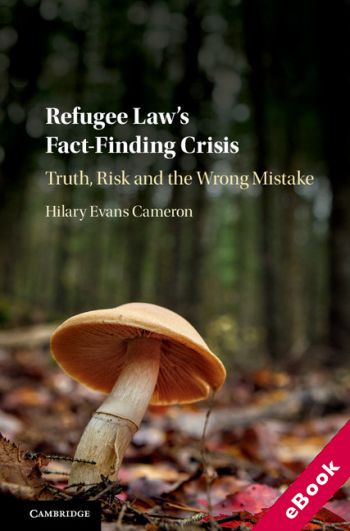
The device(s) you use to access the eBook content must be authorized with an Adobe ID before you download the product otherwise it will fail to register correctly.
For further information see https://www.wildy.com/ebook-formats
Once the order is confirmed an automated e-mail will be sent to you to allow you to download the eBook.
All eBooks are supplied firm sale and cannot be returned. If you believe there is a fault with your eBook then contact us on ebooks@wildy.com and we will help in resolving the issue. This does not affect your statutory rights.
At a time when many around the world are fleeing their homes, seeking refugee protection has become a game of chance. Partly to blame is the law that governs how refugee status decision-makers resolve their doubts.
This long-neglected branch of refugee law has been growing in the dark, with little guidance from the Refugee Convention and little attention from scholars. By looking closely at the Canadian jurisprudence, Hilary Evans Cameron provides the first full account of what this law is trying to accomplish in a refugee hearing.
She demonstrates how a hole in the law's normative foundations is contributing to the dysfunction of one the world's most respected refugee determination systems, and may well be undermining refugee protection across the globe. The author uses her findings to propose a new legal model of refugee status decision-making.